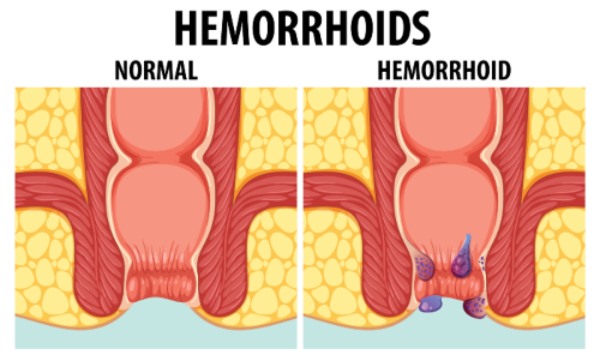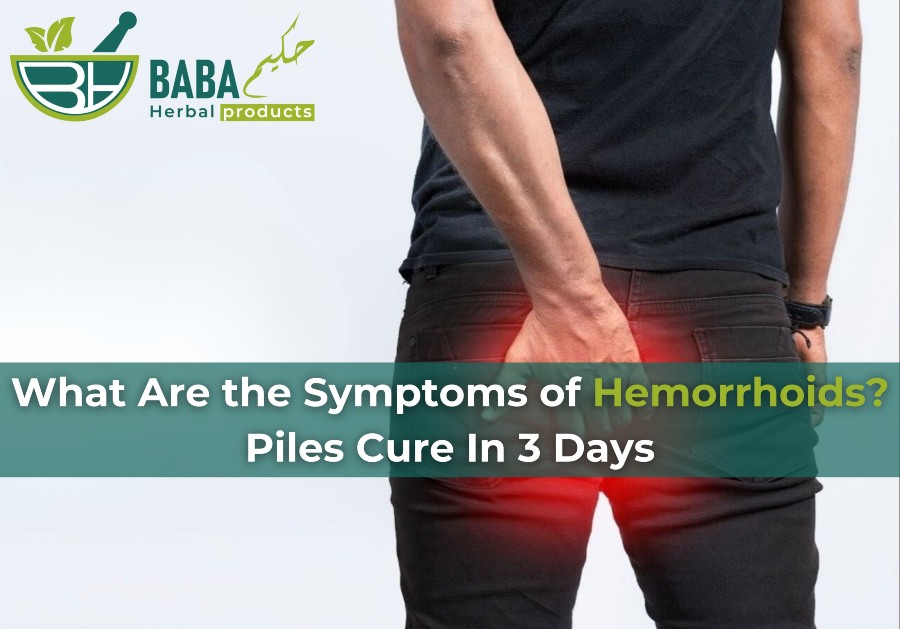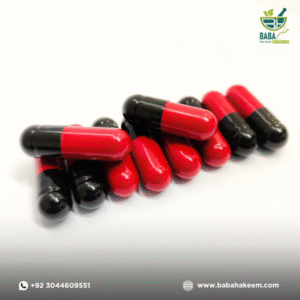Hemorrhoids occur when the blood vessels around your anus swell, frequently as a result of constipation or stress during a stool extraction. Different symptoms of hemorrhoids may include severe pain.
What Are Piles or Hemorrhoids?
Veins that swell near the anus or inferior rectum are called hemorrhoids. By age 50, about half of all adults deal with hemorrhoid symptoms. These can be internal or external. Internal hemorrhoids form inside the anus or rectum, while external ones appear outside the anus. Another name for hemorrhoids is piles.
The most prevalent and frequently most challenging hemorrhoids are the external ones. They can cause pain, and intense itching, and make sitting uncomfortable.

Symptoms of Hemorrhoids
Symptoms of Hemorrhoids depend on their type.
Internal Hemorrhoid or piles Symptoms:
- You may notice blood on tissue after a bowel movement.
- The skin may stick out of the anus during bowel movements.
External Hemorrhoid or piles Symptoms:
- You might feel extreme itching around the anus.
- There could be a lump or swelling near the anus.
- Sitting may cause pain or aches around the anus.
Hemorrhoids usually don’t cause pain, but external hemorrhoids can sometimes form a blood clot under the skin, called a thrombosed hemorrhoid. It is also possible for internal hemorrhoids to rupture, which means they do not regress back into the anus. Both prolapsed and thrombosed hemorrhoids can cause significant discomfort.
Although hemorrhoids can be uncomfortable, they are not life-threatening and often heal on their own with time and home care.
However, if you notice bleeding or black-colored bowel movements, see a doctor right away. Bleeding may be caused by something other than hemorrhoids and needs a proper check-up. Also, if your hemorrhoids don’t improve after a week of home treatment, consult your doctor.
Risk Factors
Hemorrhoids develop when the veins around your anus face too much pressure. Common causes and risk factors include:
- Straining during bowel movements
- Sitting for long periods, especially on the toilet
- Chronic constipation or diarrhea
- A family history of hemorrhoids
- Regularly lifting heavy objects or doing activities that strain your body
- Being overweight or obese
- Irritation from anal sexual intercourse
- Pregnancy, as an enlarged uterus can press on the veins in the colon
- Aging, especially if you’re over 50
By reducing strain and making lifestyle changes, you can lower the risk of hemorrhoids.
Hemorrhoids Medication & Treatment
To ease the pain, soak in a warm bath for at least 10 minutes every day. External hemorrhoids can also be relieved by sitting on hot water in a tank.
Learn how to make a warm compress at home for extra relief.
Try applying an over-the-counter (OTC) medicinal suppository, ointment, or lotion to lessen irritation and burning if the discomfort gets too great. Both online and in-store, these items are easily accessible.
If you’re dealing with constipation, take an OTC fiber supplement to soften your stool. Psyllium and methylcellulose are two popular options.
One of the most effective hemorrhoids medication is Baba Hakeem’s Hemorrhoid Treatment Powder which can make Piles Symptoms go away quickly.
Other Medical Options
If home remedies aren’t working for your hemorrhoids, your doctor might suggest a rubber band ligation. In this procedure, the doctor places a small rubber band around the hemorrhoid to cut off its blood supply. Hemorrhoid shrinks in the absence of blood flow. Only a medical professional should perform this procedure—don’t try it yourself.
If rubber band ligation isn’t suitable for you, the doctor may recommend injection therapy, also called sclerotherapy. In this treatment, the doctor injects a chemical directly into the blood vessel of the hemorrhoid. This makes the hemorrhoid shrink over time. Medical and surgical options are best for Piles Cure in 3 Days.
Ultimate Line
The majority of hemorrhoids disappear on their own. Warm showers, hydrocortisone, hemorrhoid cream, or suppository use are common treatments that aim to alleviate the symptoms of hemorrhoids. Constipation can be relieved and future hemorrhoids can be avoided by exercising, consuming lots of water, and increasing your intake of fiber.
Frequently Asked Questions (FAQs)
What are the most common symptoms of Hemorrhoids?
Common symptoms of hemorrhoids are:
- Your bowel movements, bathroom paper, or toilet tank may contain bright red blood.
- Your anus is irritated and hurts.
- a firm mass or swelling surrounding your anus.
Is Piles Medicine helpful?
Without medical intervention, hemorrhoids frequently disappear on their own. Pain and bleeding are examples of symptoms that might persist for a week or a little longer. You can alleviate symptoms of hemorrhoids in the interim. Treat the afflicted region with over-the-counter drugs.
Can you do piles cure in 3 days?
External hemorrhoids do not have a specific duration. It’s crucial to remember that external hemorrhoids frequently go away on their own in a matter of days to weeks. They could last longer in certain situations.



